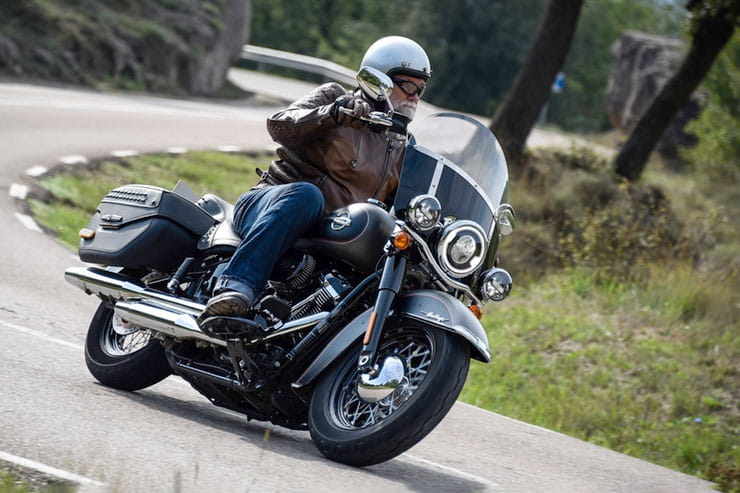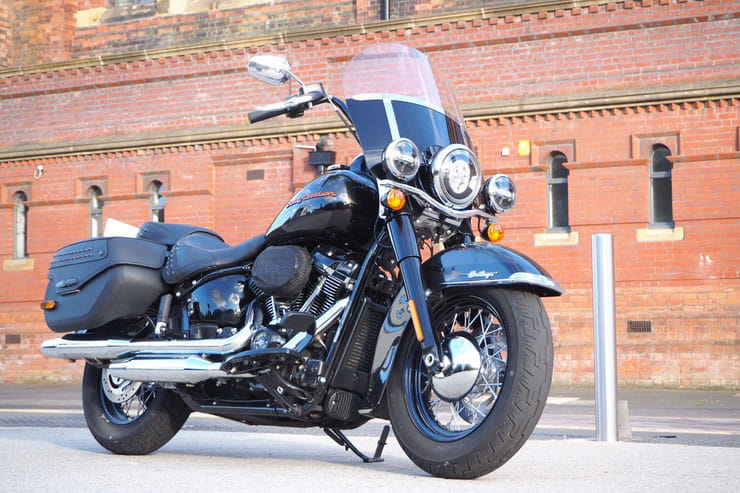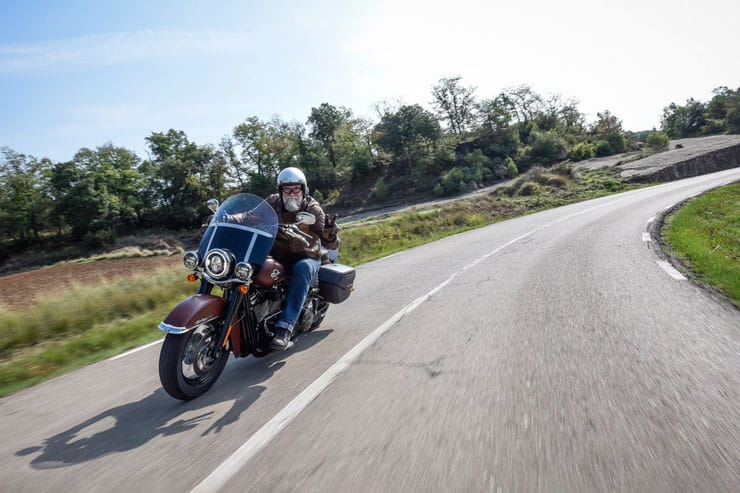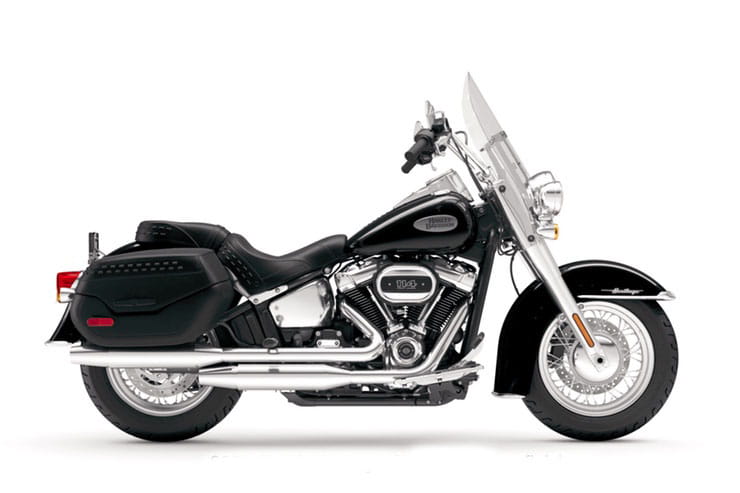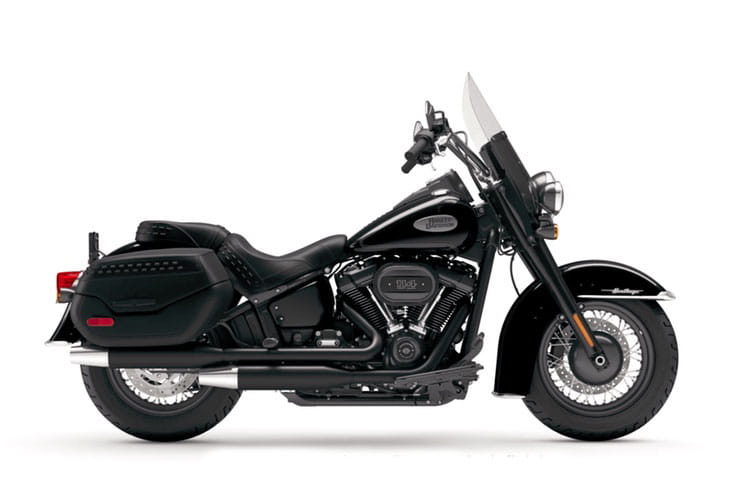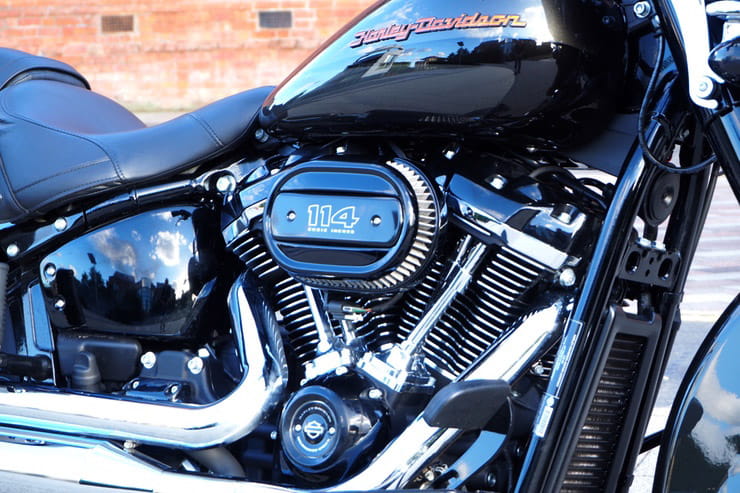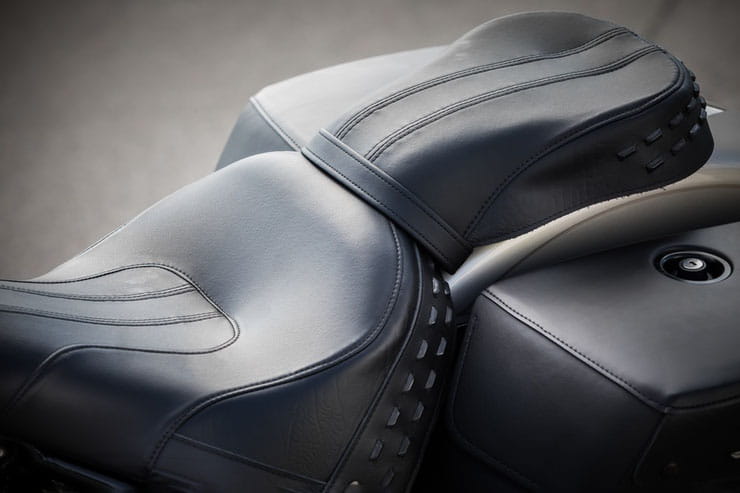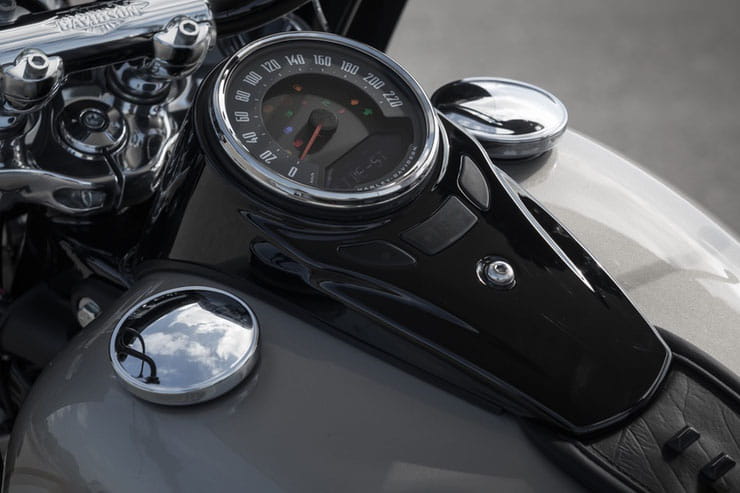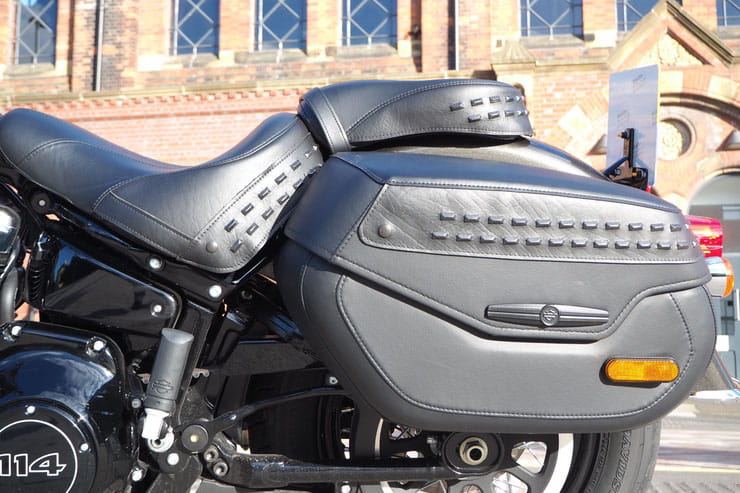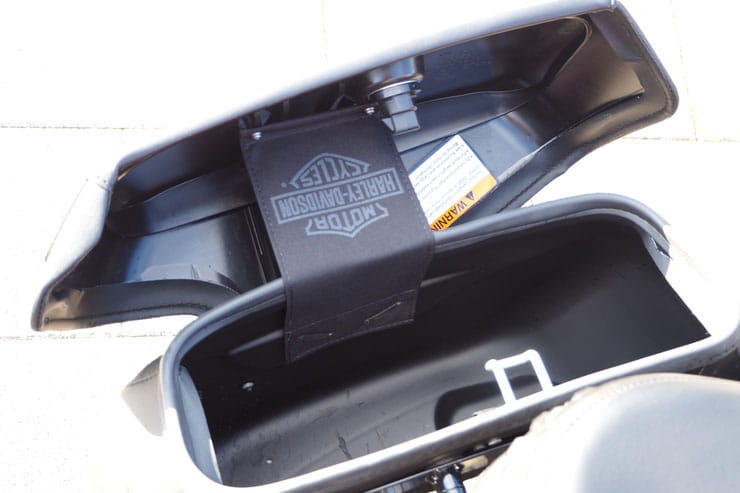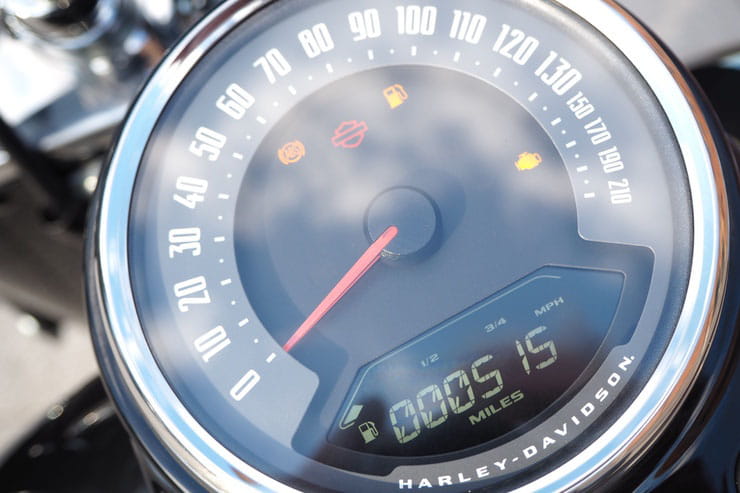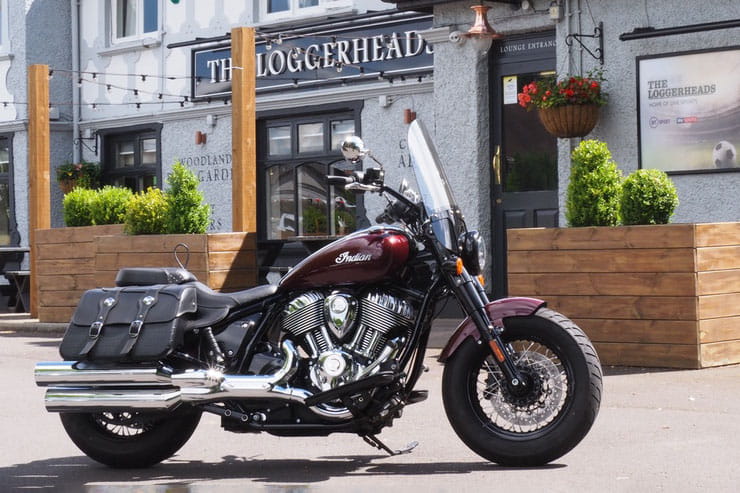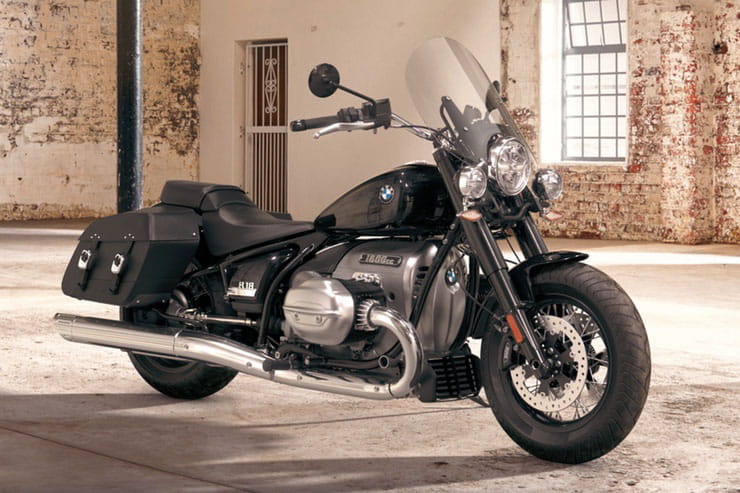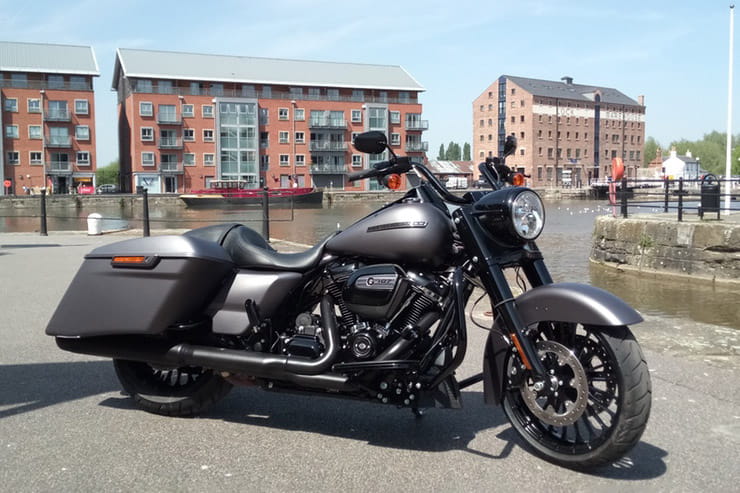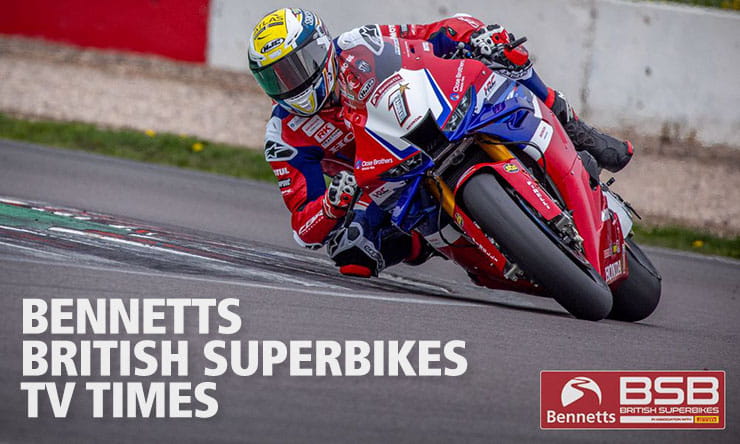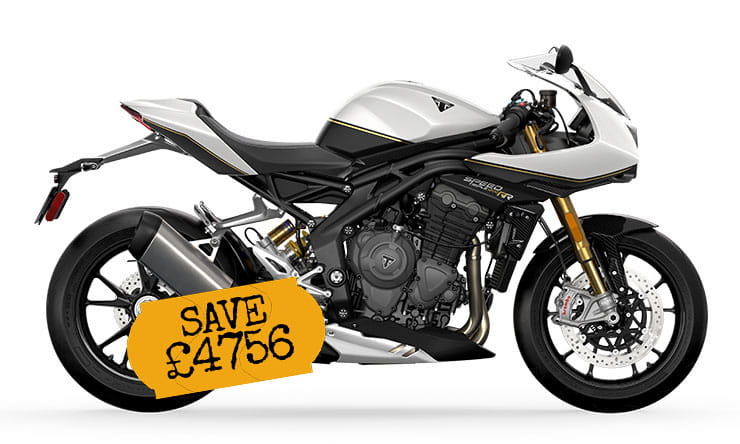Price: £23,095 – £28,295 (2023) | Power: 94hp | Weight: 330kg | Overall BikeSocial Rating: 4/5
The quintessential American motorcycle heritage brand has made its name from recycling the styles of previous generations ... or at least it did so right up the launch of the new Milwaukee Eight Softail models in 2018, which took a leaf out of another great American institution’s handbook and gave two entire model families a facelift.
The only one that escaped with just a quick nip and tuck was the FLHC Heritage Classic – formerly known as the FLSTC Heritage Softail Classic – which demonstrated just how effective such a treatment can be, especially when combined with a new heart and hips.
Pros & Cons
- Versatility
- Classic Styling
- Chrome and ‘Dark’ options
- Lockable saddlebags
- Cruise Control
- QD Saddlebags would add to the versatility
- Saddlebags have shrunk
- Lack of a pillion backrest
Classic Chrome Finish and (for an extra £1200) Classic Black Finish
Review – In Detail
Price & PCP
For and against
Engine & Performance
Handling & Suspension (inc. weight & brakes)
Comfort & Economy
Equipment
Rivals
Verdict
Specification
With prices starting at £23,377 OTR and topping out at £28,577 for the higher-status 120th anniversary model with two-tone leather as well as premium paint, you are forgiven for thinking that American heritage doesn’t come cheap, but it is the residual value of a well-kept Harley-Davidson that explains why you see so many on the road. That and the very different riding experience, which you’ll either get or you don’t.
And, of course, if you want to spread the load you’ve got a couple of options from the Motor Company itself, depending on whether you want to borrow or buy.
Harley Own is their PCP arrangement that will allow you to ride out of the showroom with no money down and £423 per month for 37 months and a high final payment of £14,737, which – if you’ve looked after the bike and not exceeded the agreed mileage – will be the minimum guaranteed value should you choose to hand it back. If it’s worth more than the minimum, you can put that equity into a deposit for your next PCP deal.
Harley Purchase, on the other hand, is their HP alternative, raising monthly payments to £750 a month with a final repayment equivalent to a regular month, at which point you own a three-year old bike. Don’t worry about it not looking like this year’s model: a Heritage Classic never does unless you’ve got an eye for colour. Just make sure you run it in right and it will become a part of the family.
In both cases, an initial deposit or a change to the agreed mileage and length of the term can dramatically change the repayments, but in all cases you’ll be charged at 11.7%APR at the time of writing
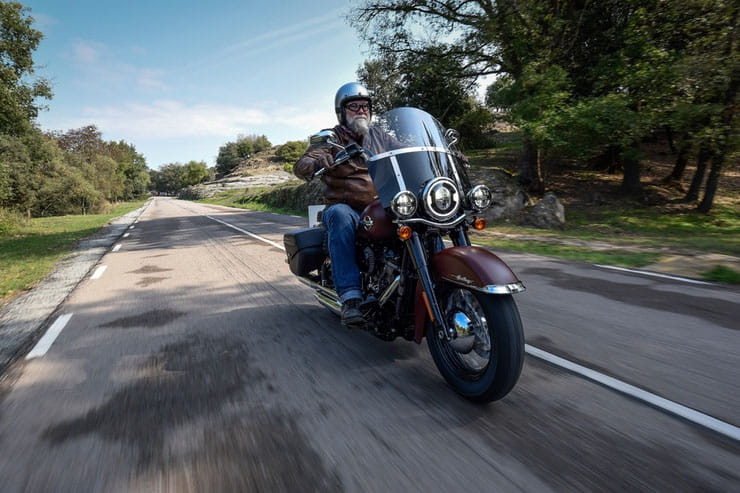
One of the big deals of the 2018-on models is the Milwaukee Eight motor, which represents a return to the long stroke power characteristic that made Milwaukee famous … although not in an old song of that name: that was Schlitz beer.
It was launched in 107-inch FLHC and 114-inch FLHCS forms, but the writing was on the wall early for the almost identical smaller capacity model. Don’t be put off by the fins of its air-cooled barrels and heads, there is a lot of surprisingly advanced technology lurking within that motor, which continues to get it through ever-tightening emissions regulations in states where a regular summer’s day would lead to a hosepipe ban over here. 4-valves per head combined with twin sparkplugs allow a more efficient and cleaner burning, bigger bang than previously, and the resulting power stroke is addictive.
It’s also surprisingly mechanically quiet for something with a pair of 4-inch pistons racing up and down 4½-inch bores at high speed thanks to hydraulic tappets keeping the valve clearances tight. Concerns regarding cam chain tensioners on early version of the Twin Cam motor before it are a distant memory, and while the transmission still looks agricultural – and can reward first gear selection at the lights with a clunk – it has invisibly evolved over the years and any unpleasantness can usually be attributed to unnecessary rushing.
It’s a very different experience to a turbine-smooth big multi, but so is the power characteristic, which is more like a big lazy diesel than a smaller and no less powerful but highly-stressed petrol engine.
To get the best out of the motor, use it as it was intended to be used. That only means don’t spin it up ‘til you bounce off the red line – about 5,500rpm – because there’s no benefit in taking it much beyond 3,500. Yes, peak horsepower is generated at 5k, but there’s no sense chasing a modest 94hp when you’ve got 114lb-ft of torque that builds up from 2k before peaking at 3,250rpm. It makes life exciting enough, and surprisingly quick if not fast. But then if you want fast, buy a 600cc Super Sport and ride it properly.
The other big deal of the 2018 relaunch was the new Softail chassis, which was a significant improvement over the previous generation – 34% stiffer and up to 20% lighter – and simplified the rear suspension action, albeit at the cost of the beloved hardtail style.
Switching from twin underslung shocks to a more conventionally positioned mono-shock opened up a host of opportunities – including moving the oil tank to sit beneath the gearbox – and a range of new shock absorbers to suit specific roles. The Heritage Classic got the mid-range option of the three, with a socked-adjustable preload adjustment, accessed by removing the dualseat. Other improvements included raising the gearbox itself thereby adjusting the angle of a narrowed primary drive chaincase, which combined to greatly improve cornering clearance on the left hand side… also helped by raising the height of the footboards.
Helped by the Showa dual-bending disc front forks – a technology from racing – it is both lighter and livelier than most previous Softails and certainly its predecessor, but retains its traditional styling.
As such, it is seen by many as being the most improved of the new generation Softails, while being the most easily identifiable.
The combination of a 114-inch motor and livelier handling does cause you look at the single front disc with some suspicion, but it’s only going to run into difficulties if you’re riding hard with lots of heavy late braking, because the only headache of the single disk is going to be its ability to absorb and get rid of heat. A heavy rider and passenger touring in the mountains would give it some work to do, but as well as learning the merits of using the back brake on an American tourer with a rear wheel weight bias, they’d be better off looking for a used Road King Classic, which is also physically bigger, leaving the rest of us to enjoy the reflections in the mirror finish of the chrome hubcap.
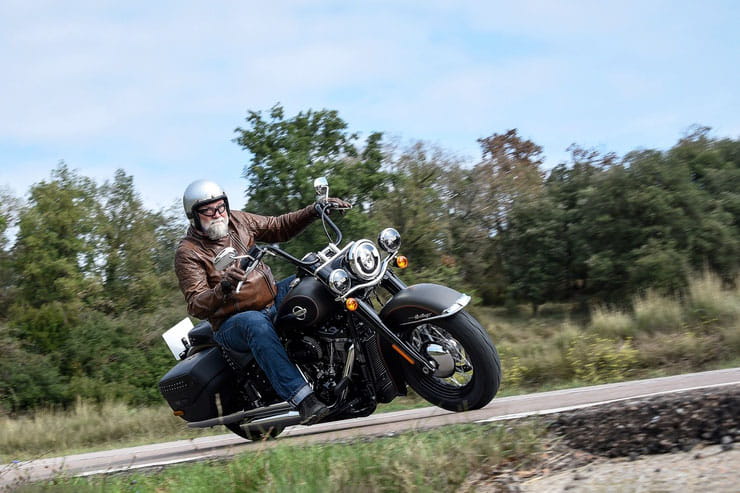
With one foot in the late 1940s and no attempt to sacrifice for function for form, the big rider’s saddle is perfect for a bike where you carry all your weight on your backside, and perfectly suited to the footboards, which allow your feet to roam compared to a pair of footpegs.
Unusually for the current Harley stable – a carryover from the Twin Cam and well suited to the overall style – the pillion seat is a decent size too, and well padded, which is great if you have a regular pillion. They don’t get the luxury of footboards as standard, but that’s less of an issue than the lack of a very useful passenger backrest: a standard fitting of Heritage Softails for nearly thirty years. As a result you’re more likely to be stopping for comfort breaks than you would otherwise need to, which is a waste of the fuel tank’s potential 200 miles range. But at least you’ll still be talking when you reach your accommodation: friends, even, if you’ve fitted an accessory backrest, and there will be a range of options.
The original FLSTC Heritage Softail Classic was based on Harley’s Heritage Softail, a Harley FL model – “F” for big engine, “L” for big wheels – to conjure up the first telescopic fork models of the very late 1940s Hydra Glide using the Softail frame to allude to the rigid frame of the time.
Like the original bike, the Heritage Softail was relatively stripped-back but the Classic was – and remains – that bike dressed for two-up touring: previously an owners choice, but Harley-Davidson more than happy to supply a host of accessories to fit the bill.
Reflecting a time before anyone was using fibreglass for fairings or any kind of bodywork, weather protection is provided by a large and practical clear windshield. It couldn’t be described as aerodynamic, but it does keep most of the atmospheric elements at bay, while the deep valance of that front mudguard works with the footboards to protect you from wet roads.
Smaller than previously, the bottom section is blacked-out on the dark finish models – which join the laced wheel rims in alluding to 1940s austerity when chrome was an option – but the chrome editions owe more to the aspirational fifties.
Similarly, the saddlebags are leather … well, leather-fronted hard bags on the 2018-on models. The change means that they are secured by a pushbutton keylock – it’s hard to lock a buckle and harder still when that buckle hides a QD clip – and hold their shape better than thick leather that either develops a righteous patina or looks tired and saggy depending on your point of view. Sadly, they didn’t take the opportunity to make them quickly detachable, like the screen, which would have given the already versatile bike even more flexibility.
Feel free to go looking for signs of advanced technology, but don’t expect to find much. The bottom of the five-inch speedometer mounted on top of the Fat Bob fuel tank is a digital read-out that gives you enough information to make touring easier, without being distracting: an odometer, twin trips, clock, digital tacho and the remaining fuel range go beyond the essentials, but this is a bike for forgetting the modern world. The seriously useful addition is a cruise control that will protect your license from the bike’s effortless ability to cover the ground quickly, maintaining a good average speed. You won’t be scanning the horizon or your mirrors for blue flashing lights as you busy the needle deeper into three figures, but eighty feels like sixty.
There was a time, and not so long ago, when other major brands fancied their chances putting up a better traditional tourer than the Heritage Softail, but better is subjective in this sector. Harley themselves had a smaller Sportster in a similar vein, as well as a Classic incarnation of the physically bigger Road King, but if not for a couple of newcomers the Heritage Classic would be the last man standing … and this has had a facelift.
Those two newcomers are Indian’s Super Chief, which has effectively replaced their old Vintage model – a rival for the Road King Classic – but in a smaller form factor, comparable with the new Softail; and BMW’s heavily-stylised, streamlined R18 Classic, which is reinventing the marque’s history and does a passable impression of a big twin, even if its short-stroke 1800cc engine sticks out either side rather than in line with the frame.
The old guard is represented by the last remaining Road King, which is a windshield short of a true rival but that can easily be fixed, and the ABS ‘Slant Bag’ panniers lack the heritage of leather saddlebags, only being able to trace their roots back sixty years but make up for it in size and their integration with the design of the bike itself.
The Indian offers another generation of technology, the BMW is a pragmatic choice, and the Road King crosses a line into the grand tourer class – even with its mini-apehanger handlebars – but the Heritage Classic, even with a facelift, makes a statement all its own.
Indian Super Chief | Price: £22,095
Power/Torque: 87bhp / 120lb-ft (162Nm) @ 3,200 | Weight: 324/335kg
BMW R18 Classic | Price: £20,046
Power/Torque: 66hp / 117lb-ft (158Nm) @ 3,000 | Weight: 365kg wet
Harley-Davidson Road King Special | Price: £24,595
Power/Torque: 93bhp / 117lb-ft (158Nm) @ 3,250 | Weight: 351/366kg
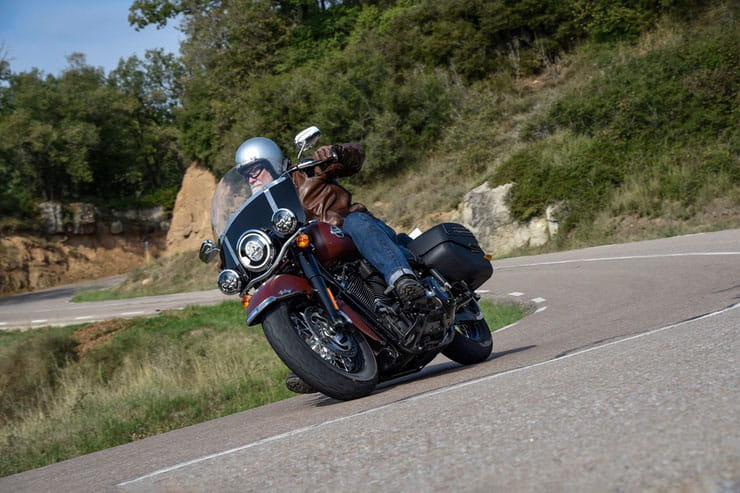
If you like a slice of down-home, traditional apple pie served up with your Americana, the Heritage Classic ticks all the boxes and is a better bike that you’d have any right to expect at first sight. The capable chassis, improved suspension and confident brakes won’t rival generations of tourers of any genre but the sum of its parts, coupled to the relaxed heartbeat of that big lazy engine offer something else: something quite different.
Despite sharing many common parts with a host of other models, it embraces the 2018-on technology improvements of the new Softail, but hides them behind a traditional façade that will be written off by many as anachronistic but is a surprisingly modern motorcycle.
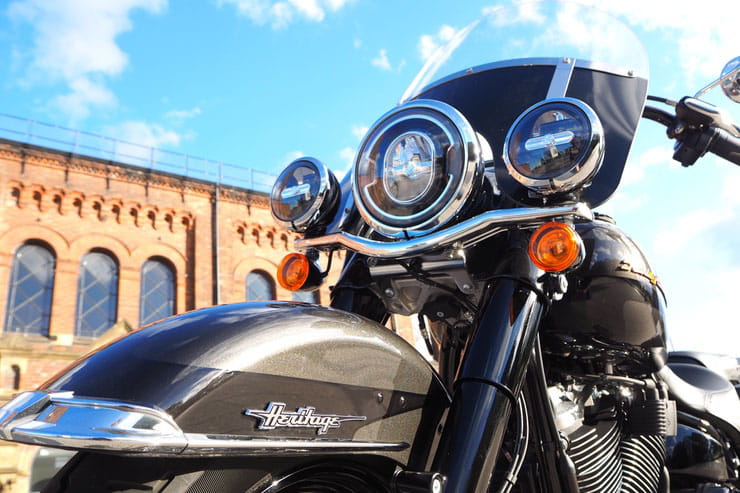
|
New price
|
From £23,095 (Vivid Black / chrome finish)
From £24,295 (Vivid Black / black finish
|
|
Capacity
|
1868cc
|
|
Bore x Stroke
|
102 x 114.3mm
|
|
Engine layout
|
45° OHV V-twin
|
|
Engine details
|
4-valve, air/oil-cooled OHV, fuel-injected
|
|
Power
|
94bhp (70W) @ 5.020rpm
|
|
Torque
|
114lb-ft (155Nm) @ 3,250rpm
|
|
Transmission
|
6 speed, chain primary / belt final drive
|
|
Average fuel consumption
|
42mpg claimed (US), 50mpg tested (UK)
|
|
Tank size
|
18.9 litres / 5 US Gallon / 4.15 Imp Gallon
|
|
Max range to empty
|
200 miles
|
|
Rider aids
|
Twin trips / range / digital tacho / clock
|
|
Frame
|
Harley-Davidson Softail
|
|
Front suspension
|
49mm dual-bending valve telescopic
|
|
Front suspension adjustment
|
Dual rate springs
|
|
Rear suspension
|
Softail
|
|
Rear suspension adjustment
|
Hydraulic adjustable for preload
|
|
Front brake
|
300mm disc, four-piston fixed caliper w/ABS
|
|
Rear brake
|
300mm disc, two-piston floating caliper w/ABS
|
|
Front wheel / tyre
|
16-inch laced / 130/90 B16 Dunlop
|
|
Rear wheel / tyre
|
16-inch laced / 150/80 B16 Dunlop
|
|
Length
|
2415mm
|
|
Wheelbase
|
1630mm
|
|
Seat height
|
680mm
|
|
Weight
|
330kg (316kg dry)
|
|
Warranty
|
2 years plus an optional 3 further years
|
|
Servicing
|
1,000 / 10,000 / 20,000 miles
|
|
MCIA Secured Rating
|
4/5
|
|
Website
|
www.harley-davidson.com/gb
|
Looking for motorcycle insurance? Get a quote for this motorbike with Bennetts bike insurance
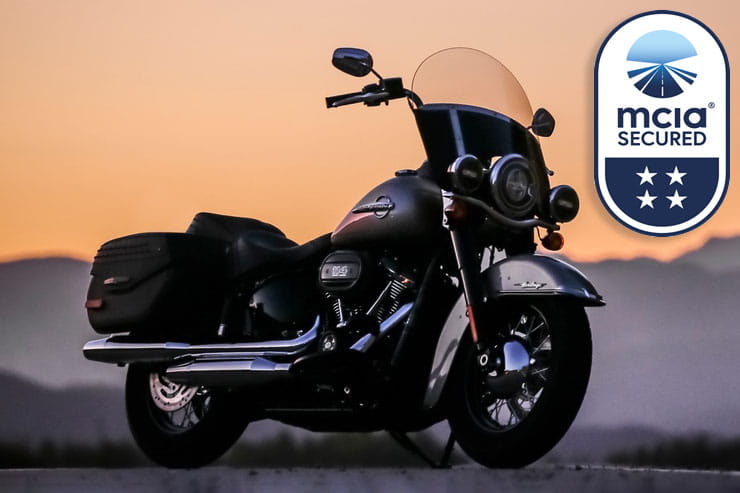
What is MCIA Secured?
MCIA Secured gives bike buyers the chance to see just how much work a manufacturer has put into making their new investment as resistant to theft as possible.
As we all know, the more security you use, the less chance there is of your bike being stolen. In fact, based on research by Bennetts, using a disc lock makes your machine three times less likely to be stolen, while heavy duty kit can make it less likely to be stolen than a car. For reviews of the best security products, click here.
MCIA Secured gives motorcycles a rating out of five stars (three stars for bikes of 125cc or less), based on the following being fitted to a new bike as standard:
- A steering lock that meets the UNECE 62 standard
- An ignition immobiliser system
- A vehicle marking system
- An alarm system
- A vehicle tracking system with subscription
The higher the star rating, the better the security, so always ask your dealer what rating your bike has and compare it to other machines on your shortlist.



